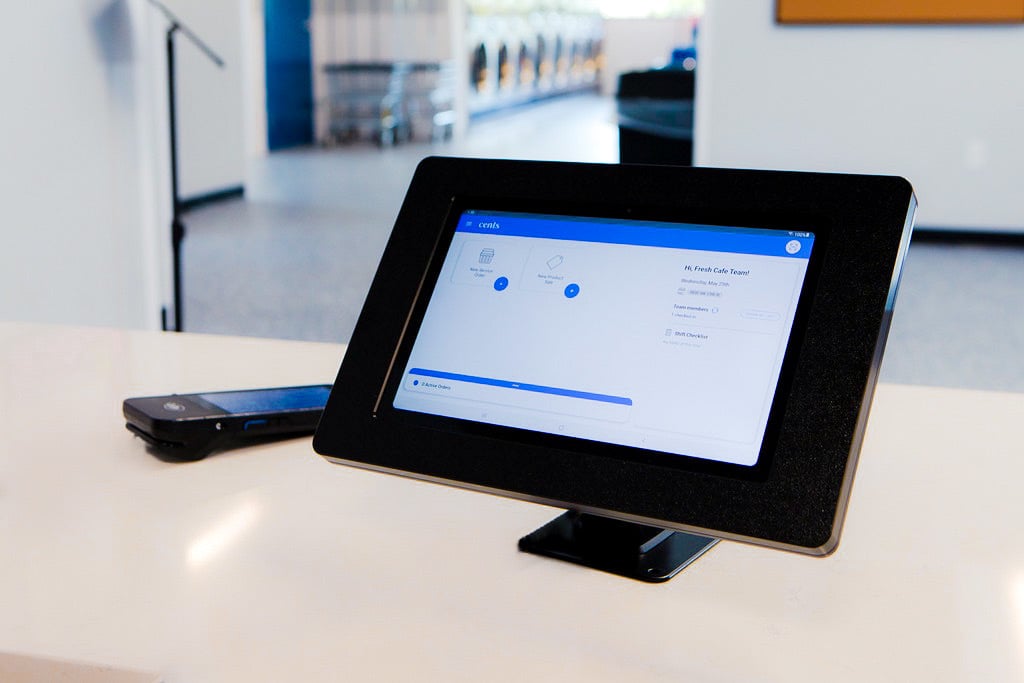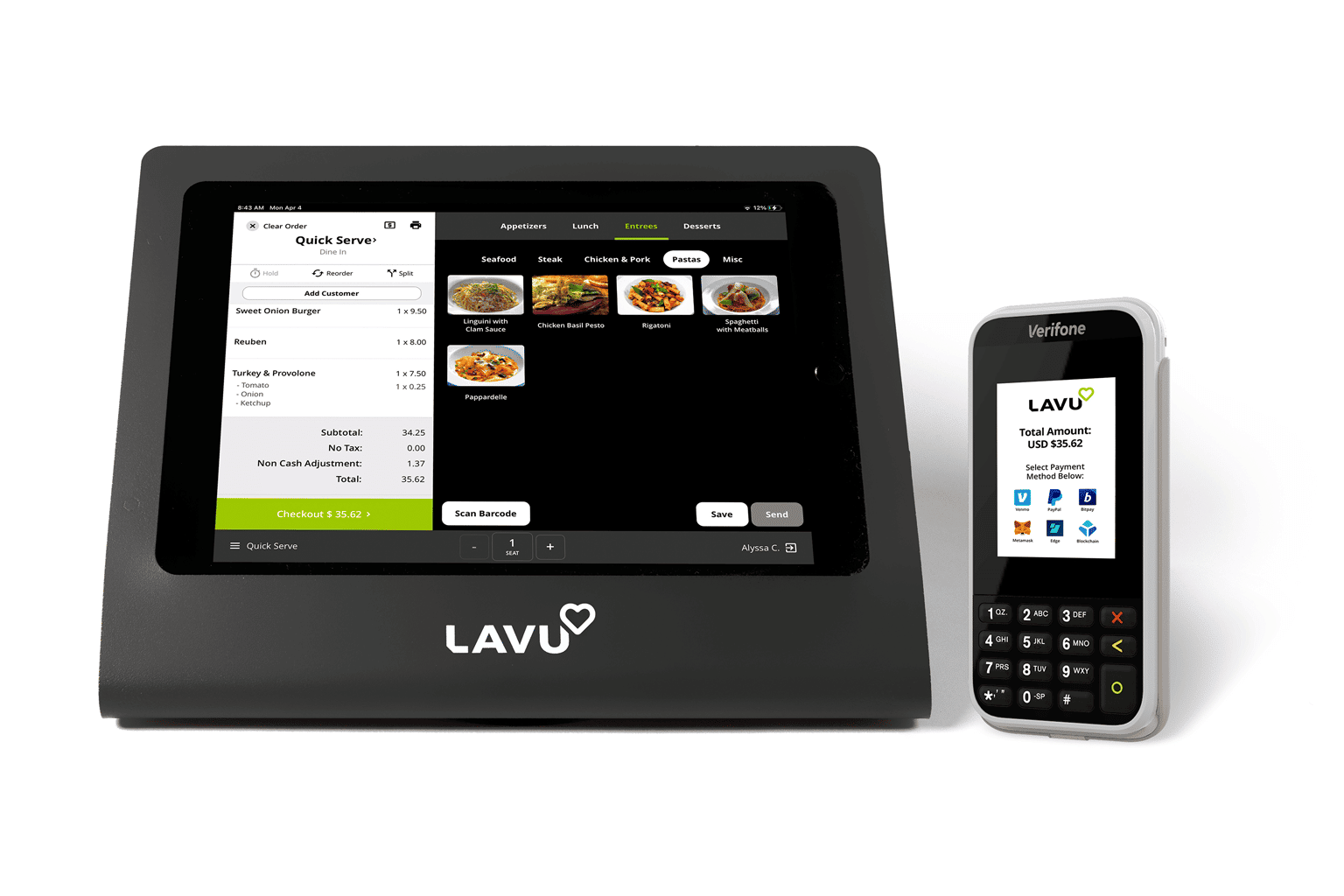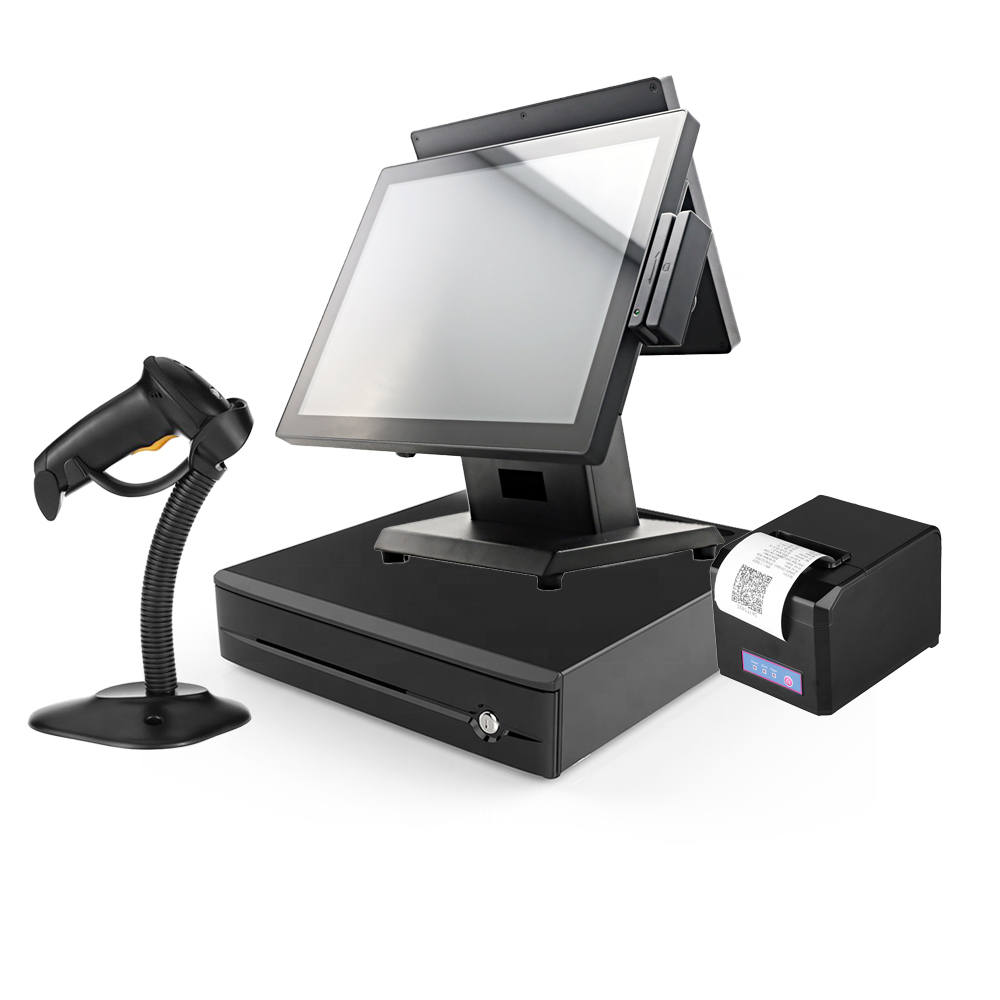Understanding the Importance of POS Software in Modern Retail Procedures
In today's retail landscape, the function of POS software application has actually ended up being significantly substantial. These systems have transformed from basic sales register to complex tools that enhance various elements of operations. They not just streamline transactions however also provide insights that can shape company methods. Recognizing just how these systems impact customer experience and supply management is vital for any type of seller seeking to stay competitive. The implications of these innovations call for additional exploration.
The Advancement of POS Software Application: From Deal Processing to Comprehensive Solutions
As retail atmospheres advanced, so too did the functionality of Point of Sale (POS) software application, which changed from basic purchase processing systems to innovative, extensive services. At first, POS systems primarily dealt with sales deals, handling sales register and printing invoices. With innovations in modern technology, these systems started incorporating inventory management, customer relationship monitoring, and sales analytics. Stores acknowledged the demand for real-time information and seamless procedures, motivating the growth of cloud-based POS solutions that enabled remote gain access to and enhanced scalability.Additionally, the increase of mobile business demanded POS systems to adapt, making it possible for purchases via tablets and smartphones. This makeover not just structured procedures yet also improved reporting abilities, enabling retailers to make enlightened choices based upon thorough data understandings. Modern POS software application has actually become essential to retail strategy, offering as a multifunctional device that supports various functional elements past plain deal processing.
Enhancing Consumer Experience With Advanced POS Includes
While several retailers concentrate on operational performance, advanced POS attributes increasingly prioritize enhancing the consumer experience. Modern POS systems now supply capabilities such as mobile payment alternatives, individualized promotions, and consumer commitment programs, which foster a more appealing shopping setting. By improving the check out procedure, these systems minimize wait times, allowing customers to total deals promptly and efficiently.Additionally, integrated client relationship administration (CRM) features make it possible for sellers to track acquiring choices and behaviors, assisting in customized advertising initiatives. This personalization not just constructs client loyalty but also improves total satisfaction.Moreover, progressed analytics given by POS systems can help retailers recognize consumer fads and preferences, permitting them to make informed decisions about product offerings and store designs. Inevitably, the concentrate on client experience with advanced POS includes not just meets modern-day consumer assumptions yet likewise drives repeat business and increases revenue for merchants.
Simplifying Inventory Administration With Integrated POS Equipments
Integrated POS systems play a crucial duty in streamlining stock management by automating processes that traditionally called for substantial hands-on initiative (Restaurant POS Software). These systems enable retailers to track supply levels in genuine time, removing discrepancies that frequently develop from manual supply counts. With features such as barcode scanning and automated stock replenishment notifies, services can preserve optimal supply levels without overstocking or stockouts.Furthermore, incorporated POS systems help with precise forecasting by examining historic sales data, permitting stores to make informed purchasing choices. This predictive ability aids companies adjust to altering customer needs and seasonal trends more effectively.Additionally, the centralization of inventory data throughout numerous sales channels enhances visibility, enabling sellers to handle their supply more effectively. Ultimately, the assimilation of POS systems right into inventory management streamlines procedures, lowers human mistake, and adds to enhanced earnings
Real-Time Sales Tracking and Coverage for Informed Decision-Making
Precise stock administration prepares for efficient sales monitoring and coverage. Real-time sales tracking allows retailers to keep track of sales performance as it takes place, giving instant understandings right into customer investing in patterns and patterns. This capacity permits companies to respond quickly to changes sought after, enhancing supply degrees and reducing overstock or stockouts.Moreover, integrated POS systems help with the generation of thorough records, highlighting key metrics such as sales by classification, period, and specific items. Such coverage capabilities empower merchants to make data-driven choices, determining effective techniques and locations needing enhancement.

The Role of POS Software Application in Customer Relationship Management
POS software plays a necessary role in boosting customer relationship administration by making it possible for merchants to apply tailored advertising techniques. By assessing client data, services can tailor communications and promotions to fulfill private choices. Additionally, these systems help with the advancement of improved loyalty programs that urge repeat organization and enhance client involvement.
Personalized Advertising And Marketing Approaches
As sellers increasingly seek to improve customer commitment and interaction, personalized marketing approaches have become an essential element of efficient customer relationship administration. POS software application plays an essential role in this process by accumulating and assessing consumer data, making it possible for merchants to customize advertising initiatives to specific choices and buying actions. By leveraging insights from acquisition backgrounds, merchants can produce targeted promotions and individualized interactions that reverberate with clients, promoting a deeper link. In addition, the combination of POS software with client relationship administration systems enables seamless monitoring of client communications, making sure that advertising strategies continue to be appropriate and prompt. This data-driven technique not only boosts consumer complete satisfaction however also encourages and drives sales repeat organization, strengthening the store's market position.
Enhanced Commitment Programs
Retailers are increasingly recognizing the significance of loyalty programs in promoting long-term customer relationships and boosting total involvement. POS software program plays a vital role in the advancement and monitoring of these programs, allowing sellers to track customer purchases, habits, and choices successfully. By leveraging information analytics, companies can develop customized rewards and motivations that reverberate with private customers, thereby boosting engagement in loyalty programs. In addition, POS systems make it possible for seamless combination with digital platforms and mobile apps, assisting in very easy accessibility to rewards and promos. This not only enhances client fulfillment however also drives repeat business. Ultimately, POS software empowers retailers to grow much deeper links with their clientele, changing periodic customers right into loyal clients through targeted and purposeful involvement techniques.
Integrating POS Equipments With Ecommerce Platforms for Omnichannel Success
To attain real omnichannel success, seamless integration between point-of-sale (POS) systems and ecommerce systems is vital. This integration permits sellers to link website their stock management, ensuring that product availability is accurately mirrored throughout both online and physical shops. Customers gain from a cohesive purchasing experience, where they can conveniently change in between channels without experiencing discrepancies.Furthermore, incorporated systems facilitate real-time data sharing, allowing companies to evaluate consumer actions and preferences more efficiently. This data-driven strategy enables merchants to tailor advertising techniques and optimize supply levels, inevitably enhancing customer complete satisfaction and driving sales.Additionally, the capability to procedure deals across systems streamlines procedures, decreasing the danger of mistakes and enhancing total performance. As merchants progressively take on omnichannel strategies, the assimilation of POS systems with ecommerce platforms continues to be an essential variable in achieving lasting growth and preserving competitive advantage in the vibrant retail landscape.

Future Fads in POS Modern Technology and Their Effect On Retail Workflow
As retail procedures evolve, future fads in POS innovation are readied to reshape the landscape significantly. The surge of cloud-based remedies, advancements in mobile POS systems, and the advantages of AI integration are among the key developments prepared for to enhance effectiveness and consumer experience. These advancements promise to streamline procedures and promote an extra vibrant retail atmosphere.
Cloud-Based Solutions Surge
With the raising dependence on technology, cloud-based POS solutions are changing retail procedures by providing improved adaptability and scalability. These systems allow sellers to accessibility real-time information from anywhere, promoting far better decision-making and customer support. By leveraging cloud infrastructure, companies can decrease in advance expenses connected with software and hardware installments while ensuring smooth updates and upkeep. In addition, cloud-based remedies sustain multi-location monitoring, allowing retailers to synchronize inventory and sales throughout various electrical outlets effortlessly. This versatility is important in today's fast-paced market, where consumer preferences change swiftly. As even more sellers embrace these options, they can expect better functional effectiveness and a more receptive method to market needs, eventually enhancing client contentment and loyalty.
Mobile POS Innovations
The evolution of retail modern technology proceeds to shape operations, specifically with the increase of mobile POS technologies. These systems make it possible for stores to refine deals anywhere within the shop, improving customer involvement and enhancing check out procedures. Mobile POS services boost supply management by permitting instantaneous access to supply levels, assisting team assist consumers much more efficiently. Additionally, they promote tailored buying experiences via incorporated customer information and loyalty programs. As mobile phones become progressively innovative, sellers are embracing attributes such as digital receipts and contactless settlements, in addition enhancing the buying journey. The change towards mobile POS not just boosts operational performance however additionally straightens with the expanding customer choice for benefit, guaranteeing that merchants remain affordable in a swiftly developing market.
AI Assimilation Benefits
AI integration stands for a transformative leap in POS innovation, providing stores a myriad of advantages that enhance operational effectiveness and client experience. By leveraging artificial intelligence formulas, stores can evaluate buying patterns and optimize inventory management, minimizing waste and stockouts. In addition, AI-powered analytics give tailored advertising referrals, enabling targeted promos that increase customer involvement and commitment (Restaurant POS Software). Chatbots and digital aides enhance client service, permitting for quicker resolution of queries and website enhancing the total purchasing experience. Anticipating analytics can likewise forecast need patterns, enabling smarter staffing and resource appropriation. Ultimately, the combination of AI in POS systems equips merchants to make data-driven choices, promoting an one-upmanship in an ever-evolving retail landscape
Often Asked Questions
What Are the Costs Related To Implementing POS Software?
The costs related to applying POS software can include software application licensing fees, hardware expenditures, installment fees, training costs, and ongoing upkeep. Each variable adds to the overall investment essential for a successful application.
How Can Small Retailers Take Advantage Of POS Equipments?

What Equipment Is Needed for a POS System?
A normal POS system calls for necessary equipment parts, including a touchscreen display, cash money drawer, barcode scanner, receipt printer, and repayment terminal. These elements interact to promote reliable purchase processing and inventory administration for merchants.
Can POS Software Be Custom-made for Specific Retail Demands?
POS read more software can indeed be personalized to fulfill specific retail requirements. This flexibility enables businesses to customize features, user interfaces, and coverage tools, improving functional performance and offering a much more personalized experience for both personnel and customers.
Just How Safe And Secure Is Consumer Information in POS Equipments?
The protection of consumer information in POS systems varies commonly. Lots of systems implement file encryption, secure gain access to controls, and regular updates, but vulnerabilities can still exist, requiring continuous alertness and proactive measures from retailers to safeguard sensitive information. By improving the check out process, these systems lower wait times, allowing customers to complete transactions swiftly and efficiently.Additionally, incorporated consumer connection monitoring (CRM) features enable merchants to track purchasing behaviors and choices, promoting tailored advertising and marketing efforts. As stores significantly look for to enhance customer commitment and interaction, customized advertising methods have actually emerged as a crucial component of efficient client relationship monitoring. Furthermore, the combination of POS software with customer partnership management systems enables for smooth monitoring of consumer communications, guaranteeing that advertising techniques remain pertinent and prompt. Consumers profit from a cohesive purchasing experience, where they can easily switch over between networks without coming across discrepancies.Furthermore, integrated systems assist in real-time data sharing, enabling businesses to analyze customer behavior and preferences more efficiently. Little retailers can benefit from POS systems with improved transaction efficiency, structured inventory management, and improved client understandings.